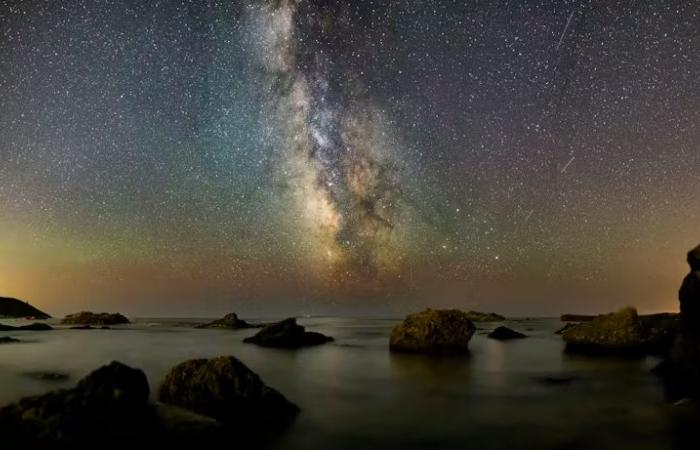The discovery of space
In space, the launch of the Soviet probe Luna 1 in 1959 marked the beginning of space exploration of the Solar System. 60 years later, all eight planets in the Solar System had been visited by a space probe, as well as the largest satellites of the giant planets. These probes produced images of the uninhabitable, but incredibly varied, extraterrestrial landscapes.
Exploration using cameras from space has rapidly been enriched with instruments to map the nature of materials (chemical composition, mineralogical, search for organic molecules) while in-situ exploration is developing (landers, then vehicles capable of rolling, and most recently a small helicopter), for ever greater mobility for exploration. It is possible to produce geological maps of any red planet without any man having set foot on its soil.
Our knowledge of the solar system also comes from meteorites, torn off by collisions (impacts) and which end their interplanetary journey on the surface of our planet. Space missions are also dedicated to collecting samples. This was the case for the Apollo missions to the Moon, and more recently for the OSIRIS-REx mission which was able to bring back to Earth a sample of the asteroid Bennu. Soon, it will be Mars’ turn.
Space probes have reached considerable distances. The New Horizons probe, after flying past Pluto, went to the edge of the Solar System (more than 6 billion km from Earth) to provide images of a small asteroid (Arrokoth) shaped like a snowman that tells us about the first moments of the formation of the planets. But there is still much to explore, in search of environments that may be habitable. Thousands of bodies in the Solar System (asteroids, small satellites of giant planets) are known only from the light they reflect from the Sun. The distances traveled already seem immense, but no space probe built by man has really left the Sun’s zone of influence, even if Voyager 1 and 2 are well and truly on their way to the interstellar medium. To reach the star closest to us, we must travel not a few billion kilometers, but 40,000 billion! It is not currently possible for us to directly explore space beyond the solar system other than through the light that objects in the universe reflect back to us.
From a cartographic point of view, it is correct to say that we know the surface of the stars of the solar system better than the seabed. The resources allocated to the former are greater (2 billion euros went to space exploration in France in 2020, compared to 0.4 billion for the ocean floor). Beyond the Solar System, technological prowess makes it possible to see some details on the “surface” of the stars, and to reveal the rocky or gaseous nature of exoplanets, but we are very far from having mapped the hundreds of billions of objects that populate our galaxy.
It must be reaffirmed here that science is largely a matter of exploration and it is essential to cultivate this fundamental dimension. This exploration is closely linked to the search for the origins of life, even if other issues, economic or geopolitical, also motivate this research. Organic molecules discovered outside our planet or bio- and geological processes identified in the dark environments of the seabed question the capacity of life to develop elsewhere and everywhere in the universe. The exploration of space and the seabed are not opposed, they are complementary, and feed off each other to understand our origins, rethink our present and design our future!
Collot Julien, Research professor in marine geosciences, University of Western Brittany ; David Baratoux, Geologist, Research Institute for Development (IRD); Pierre-Yves Le Meur, Anthropologist, Senior Researcher, Research Institute for Development (IRD) and Sarah Samadi, professor of evolutionary biology, National Museum of Natural History (MNHN)






